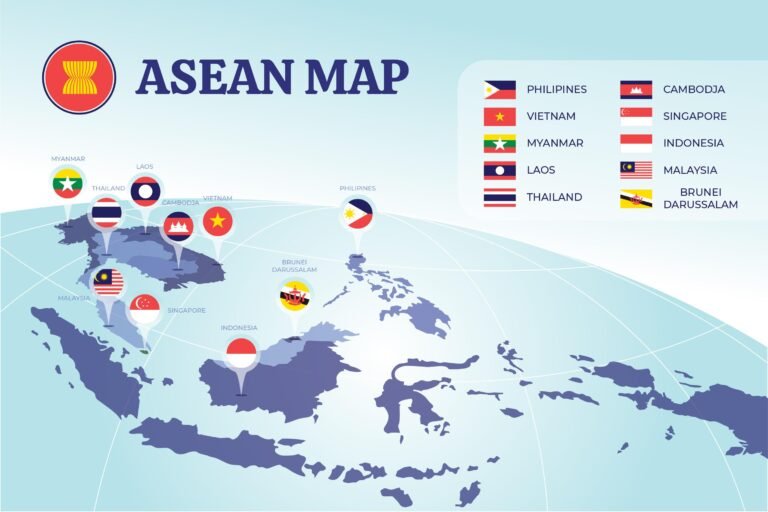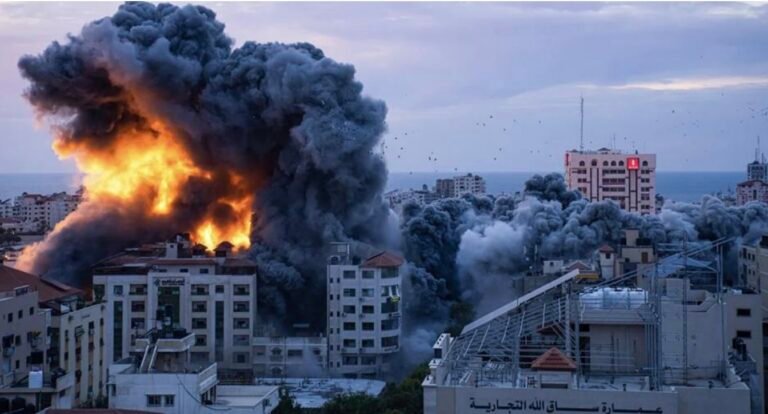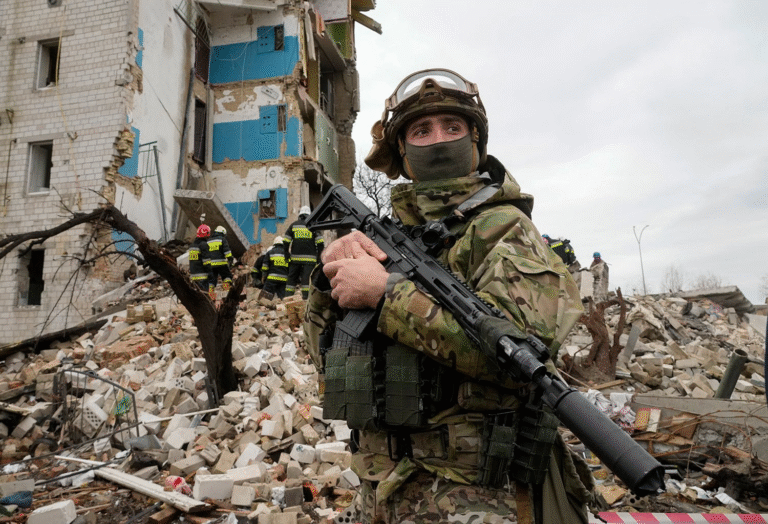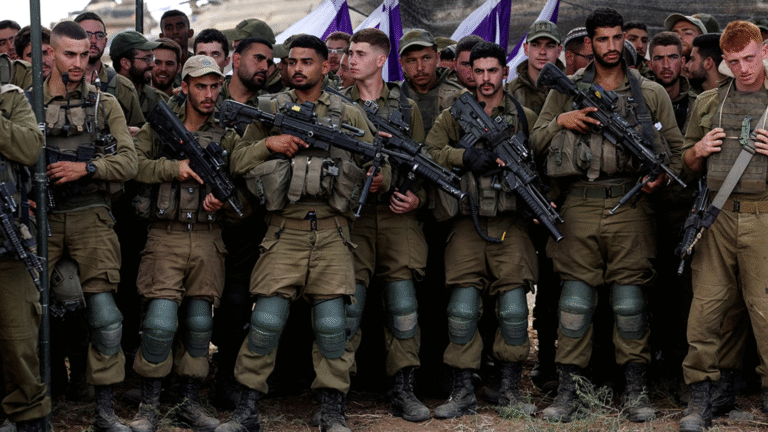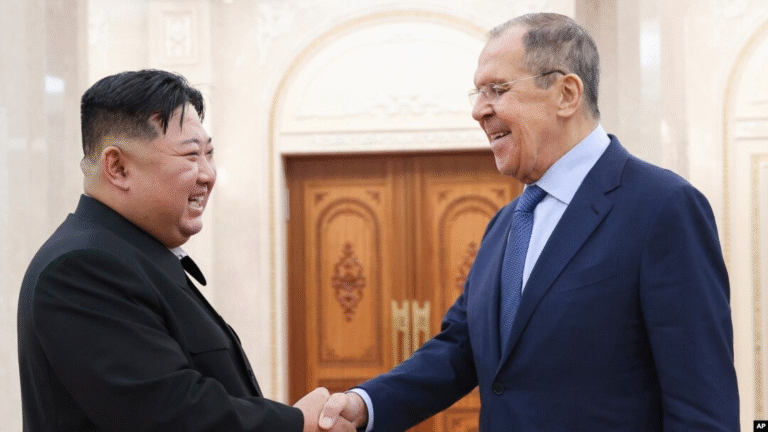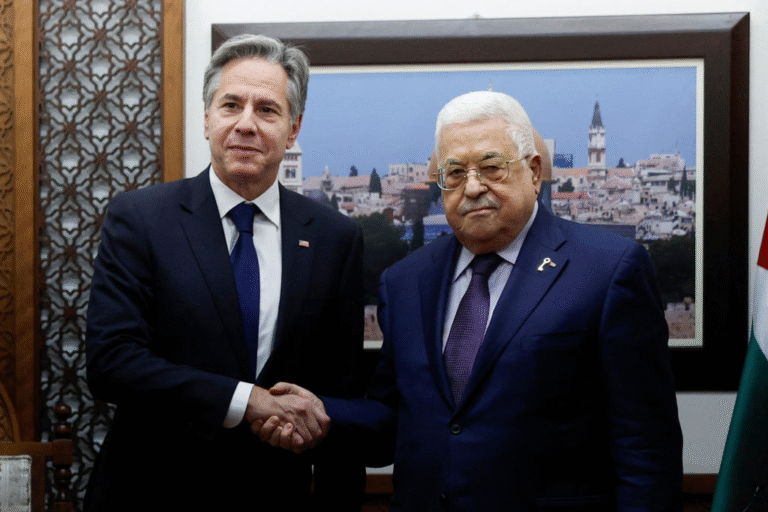
Ukrainian soldier stands near apartment destroyed from Russian shelling in Borodyanka, April 6, 2022 Photo Credit: Efrem Lukatsky via AP Images Blog
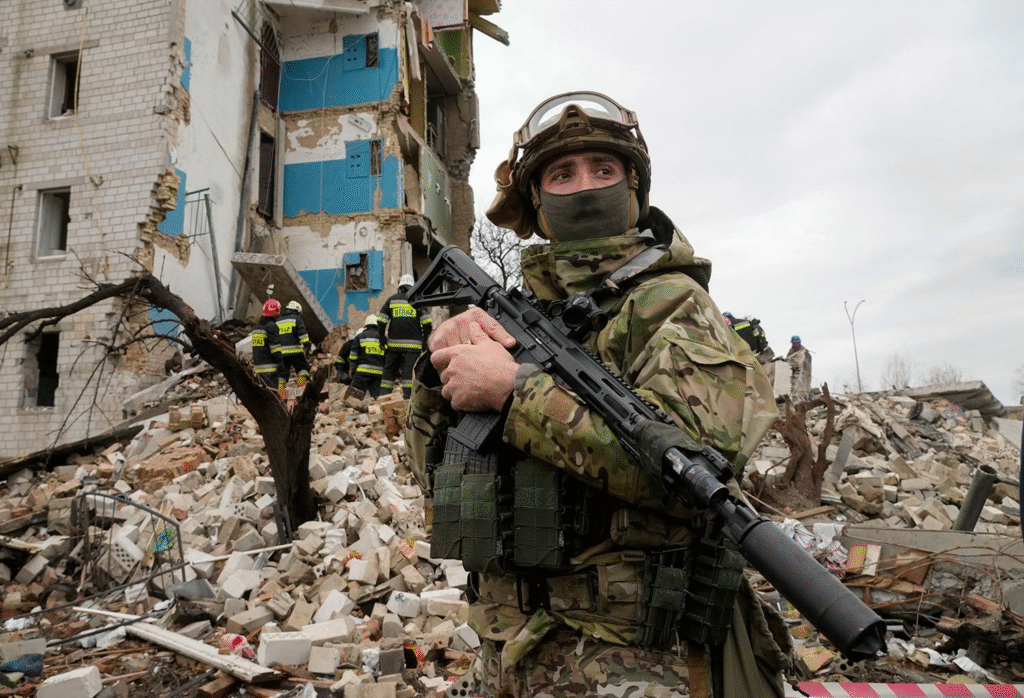
Ukrainian soldier stands near apartment destroyed from Russian shelling in Borodyanka, April 6, 2022
Photo Credit: Efrem Lukatsky via AP Images Blog
Li Zhi Rieken
The America-Eurasia Center
Ukraine-Russia Program
www.eurasiacenter.org
No Swift End to The War
In a recent interview, Jens Stoltenberg—former Norwegian politician and current NATO Secretary-General—warned that, “there will be no swift end to the Ukrainian War”.1 Since February 2022, Ukraine has shocked the world with its resilience and ability to form a unified front both on and off the battlefield. However, with no end in sight, Ukraine has been forced to rely on its allies to fulfill its tall wartime orders. With that being said: where does that leave Ukraine and its allies? This article will examine these wartime actors in addition to a decline in support for Ukraine amongst key Western allies.
War Fatigue in Western Nations
On October 5, 2023, Ukrainian officials reported a Russian missile that hit Hroza, a small village in eastern Ukraine—killing at least 52 people gathered for a wake. Following one of the biggest losses of civilian life since the beginning of the war, there have been increasing pressures on Western nations to meet Ukraine’s steep military requests.2 On the same day of the Hroza disaster, President Volodymyr Zelenskyy of Ukraine attended a summit in the Spanish city of Grenada. Zelenskyy used the summit to urge European leaders to continue their support of Ukraine through additional military aid. While Zelenskyy affirmed his confidence in the backing provided by the United States, President Vladimir Putin of Russia continued to lay blame on “Western antagonists” for the war in Ukraine.3 Despite Zelenskyy’s faith in U.S. support, opposition to sending military aid to Ukraine has gained momentum amongst House and Senate Republicans. Congressional leaders quickly passed a temporary funding measure—averting a government shutdown, but also dropping $6 billion of funding for wartime efforts in Ukraine. The Biden administration is reportedly working on another Ukraine aid package that includes new weapons and equipment, but the House of Representatives is currently at a standstill after the ousting of Rep. Kevin McCarthy
from his post as Speaker of the House.4
Similar war fatigue—the social phenomena of increasing public and political disapproval after prolonged conflict—can be found in Germany. German economic decline, partially spurred by the loss of Moscow’s cheap natural gas, continues to have catastrophic impacts on Germany’s energy-intensive industries. Germany has historically been one of the world’s largest economies, but is now threatened by high energy costs, massive layoffs in its manufacturing industry, and other long-term impacts from deindustrialization. Germany’s reliance on industry—whether that be auto, chemical, or machinery—and lack of economic diversification by previous governments, has left it vulnerable to the ongoing long war—both politically and economically.5
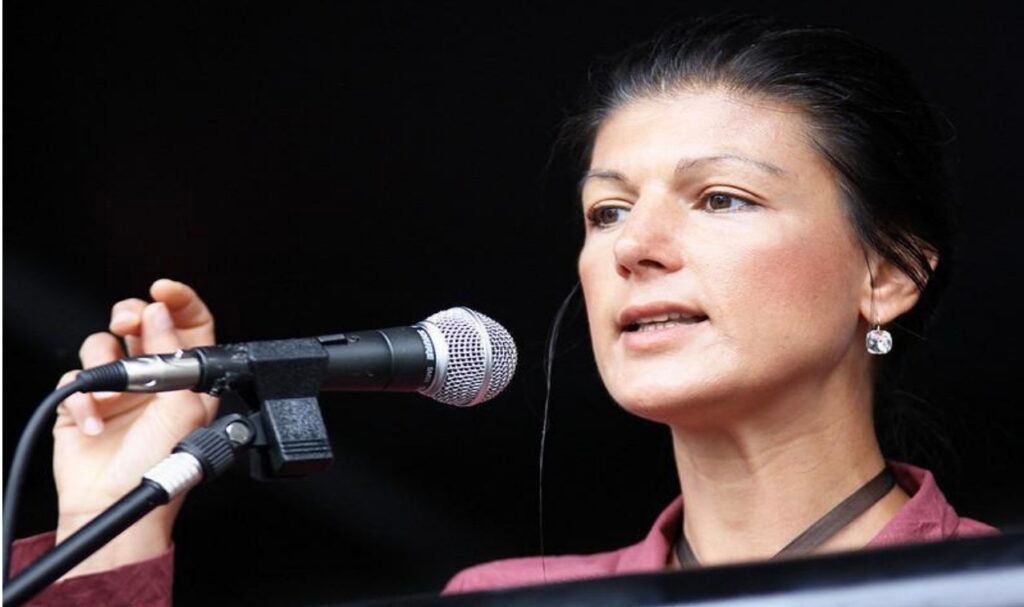
Sahra Wagenknecht, a current member of the Bundestag, May 22, 2014
Photo Credit: Niels Holger Schmidt via Die Linke Nordrhein-Westfalen
Germany’s far-right party, Alternative for Germany (AfD), is now nearing around 20 percent in national polling—solidifying its spot in second place. At both local and regional levels, efforts by all other parties to quell the growing support for AfD candidates has been met with increasing difficulty.6 Although the rise in (often pro-Putin) right-wing parties is a trend established in many countries throughout Europe over the past 15 years, Germany is unique. Sahra Wagenknecht (Fig 1.1) has also carved out a spot for herself in the evolving German political scene as a pro-Russian figure, but on the left. Wagenknecht, a former leader of the Die Linke (2015-2019) and current
member of the German national parliament, has expressed interest in creating her own political party.7 Her surge in popularity since Russia’s all-out invasion of Ukraine in addition to her opposition to lockdowns and widespread vaccinations during the COVID-19 pandemic, has emboldened Wagenknecht to publicly threaten to leave her party and start a new one. Wagenknecht’s heightened recognition can largely be attributed to her role as the leader of the
“peace campaign,” a campaign centered on condemning Western nations for arming Ukraine in its fight against Russia.
Wagenknecht offers a new mixing of ideologies to German citizens: conservative social values paired with socialist economic values. Her niche combination has struck a chord with eastern Germans, but it is not yet clear the demographics she would appeal to if she forms her own party. In the case that Wagenknecht starts her own party, she would take a sizable portion of the Left’s members of parliament and supporters with her—sending shockwaves through the Left Party and its already dwindling numbers. Her potential party would also serve to rival the AfD; in fact, many of the AfD’s current supporters are not particularly committed to the party, leaving room for them to be won over by a budding Wagenknecht party.8
The Rise of Pro-Russian Sentiments
With much of Germany’s political stability riding on Wagenknecht’s next move, there is a broader trend of anti-Ukrainian sentiments in Germany. Recent public opinion surveys in Germany indicate that support for Ukraine may be more uncertain as the war drags on. One survey shows that only 50 percent of Germans believe that Ukraine should include all of its original territory before the 2014 annexation of Crimea.9 Although, 29 percent of Germans believe that Crimea should remain under Russian occupation. Additionally, one poll revealed that 26 percent of Germans believe that German support of Ukraine has gone too far.10 An October 2022 survey suggests that 40 percent of Germans fully or partially believe that NATO provoked Russia into invading Ukraine. This percentage increases to 59 percent in Eastern German provinces—demonstrating the adoption of pro-Russian talking points spewed by Putin and his cronies.11
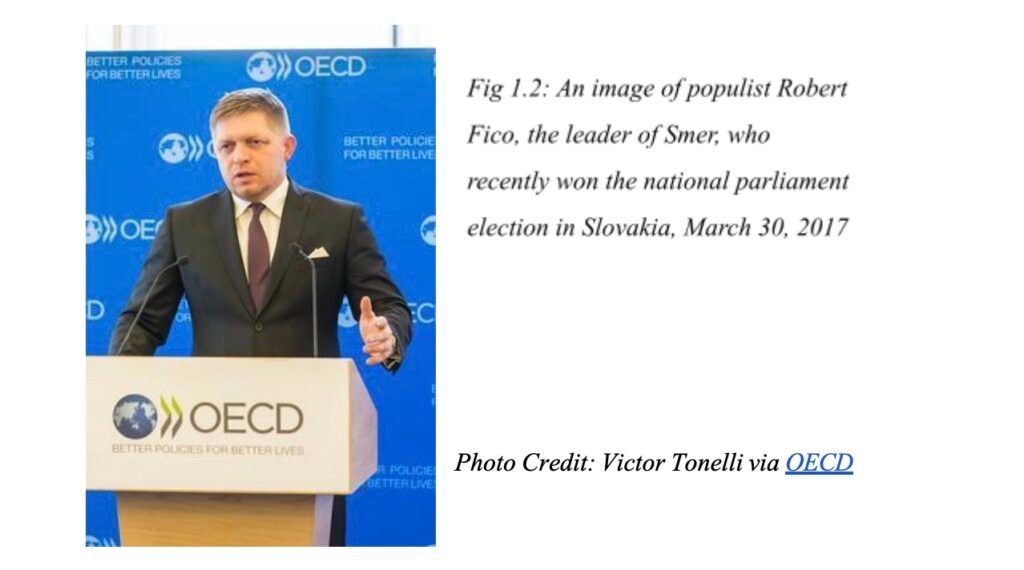
The same patterns can be seen in Slovakia. Former Prime Minister Robert Fico (Fig 1.2) campaigned on a pro-Russia and anti-Ukraine platform: stop Slovakia’s weapon exports to Ukraine, block Kyiv’s possible NATO membership, and counter sanctions on Russia to strengthen ties.12 Fico and his populist party, Smer, won 23% of the vote in the September 30, 2023 national parliamentary elections.13 Following the advancement of Slovakia’s populist tilt, Slovak President Zuzana Čaputová asked Fico to form a coalition government. After being tasked with forming a coalition government, Fico established a coalition with the center-left breakaway, Hlas, and far-right pro-Russian national party, SNS; already, the Slovak government is likely to see drastic changes.14 The coalition deal ensures that Smer will get to appoint the prime minister and six other ministers, which will allow Fico to serve as Slovakia’s prime minister for the third time.15 The support for Fico’s anti-Kyiv and pro-Moscow rhetoric has signified a sharp turn away from Slovakia’s initial position at the start of Russia’s war in Ukraine.
How Does Ukraine Reckon with Faltering Support?
With weakening support from the U.S., Germany, Slovakia, and Poland (just to name a few), the question remains: how will Zelenskyy reckon with these turning tides? The answer is not certain, but it seems that Zelenskyy’s approach has continued to be international trips allied with compelling speeches to rouse global support. Since the launch of the June counteroffensive, Ukraine has aimed to regain lost territory near Bakhmut and control of the Crimean bridge—connecting the Crimean Peninsula to mainland Russia. These lofty goals are further complicated with Russia’s artillery defenses and air superiority along with Ukraine’s possibility of ammunition shortages on the frontlines.16 Europe’s shrunken military sector may not be able to provide the ambitious one million rounds of ammunition promised to Ukraine in March 2023. The promise—set to be fulfilled in March 2024—might be walked back with many supply chain bottlenecks and a lack of resources.17 Along with war fatigue, Ukraine will have to deal with approaching winter conditions and the recent intense combat in eastern Ukraine. At the northern frontlines in eastern Ukraine, fighting has escalated as Russian troops continue to regroup and mount attacks on neighboring villages.18
- https://www.theguardian.com/world/live/2023/sep/17/russia-ukraine-war-live-nato-chief-warns-of-no-swift-end-to-war-russian-missiles-hit-agricultural-facility-in-odesa ↩︎
- https://www.nytimes.com/2023/10/05/world/europe/ukraine-kharkiv-hroza-explosion.html ↩︎
- https://apnews.com/article/eu-ukraine-summit-armenia-serbia-granada-823a8734716f0fc717a61adbacff1c65 ↩︎
- https://apnews.com/article/congress-ukraine-speaker-mccarthy-aid-7a046bc90ccb995f5e845bc98ad370e8 ↩︎
- https://www.euronews.com/2023/09/23/germany-went-from-envy-of-the-world-to-the-worst-performing-major-developed-economy-what-h ↩︎
- https://www.politico.eu/article/germany-bewildered-about-how-to-halt-the-rise-of-the-afd/ ↩︎
- https://www.politico.eu/article/germany-left-party-declares-figurehead-persona-non-grata-sahra-wagenknecht-plunges-crisis/ ↩︎
- https://www.dw.com/en/sahra-wagenknecht-the-far-left-challenge-to-germanys-rising-far-right-afd/a-66470345 ↩︎
- https://www.merkur.de/politik/ende-krieg-jahr-mehrheit-deutschland-russland-krim-91995912.html ↩︎
- https://www.tagesschau.de/inland/deutschlandtrend/deutschlandtrend-3255.html ↩︎
- https://foreignpolicy.com/2023/09/17/east-germany-putin-afd-misinformation/#cookie_message_anchor ↩︎
- https://www.politico.eu/article/slovakia-president-caputova-says-no-military-package-ukraine-aid-after-elections-results/ ↩︎
- https://twitter.com/EuropeElects/status/1708415328739373109 ↩︎
- https://www.politico.eu/article/slovakia-president-caputova-says-no-military-package-ukraine-aid-after-elections-results/ ↩︎
- https://apnews.com/article/slovakia-ukraine-fico-government-519143efa27636b6e4dbc75ae40c7397 ↩︎
- https://thehill.com/policy/defense/4148128-alarm-grows-as-ukraines-counteroffensive-falters/ ↩︎
- https://www.nytimes.com/2023/09/23/world/europe/eu-ukraine-war-ammunition.html ↩︎
- https://abcnews.go.com/International/wireStory/fierce-fighting-persists-ukraines-east-kyiv-reports-nonstop-103978362 ↩︎
